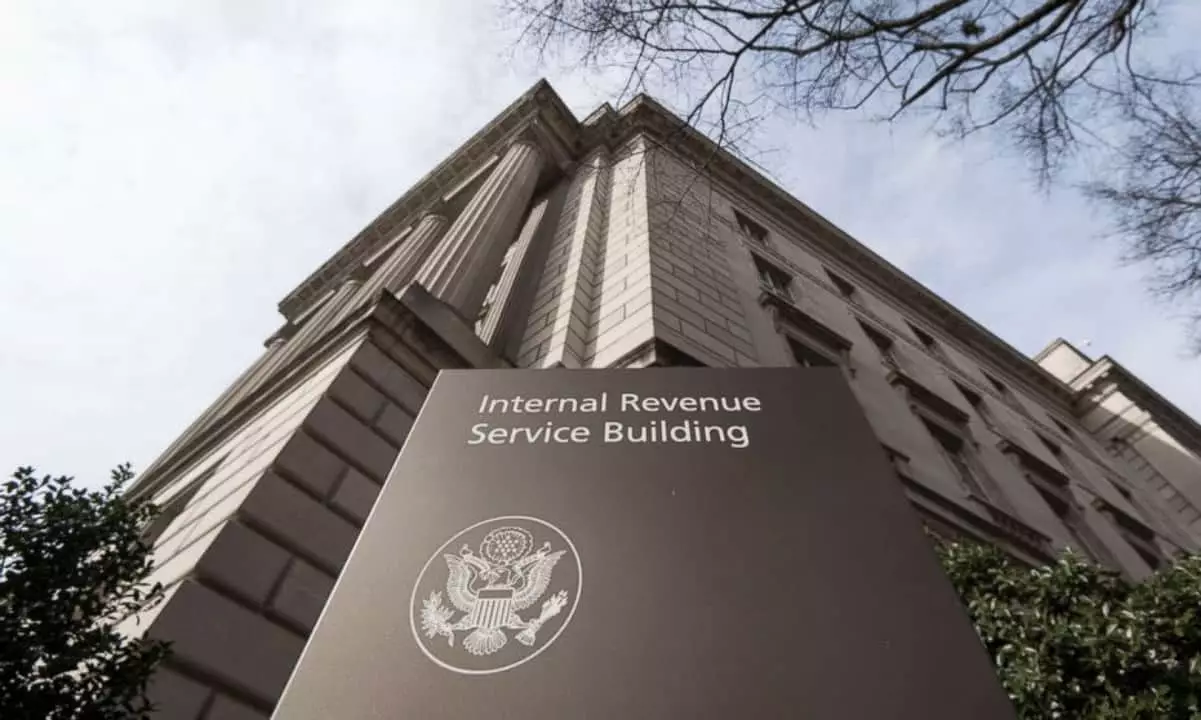The landscape of cryptocurrency transactions is on the verge of a dramatic transformation as new IRS regulations come into effect in 2025. These guidelines will impose reporting obligations on centralized exchanges (CEX), fundamentally altering how digital asset investors manage their tax obligations. The implications of these changes are profound, and understanding them is essential for anyone involved in cryptocurrency investments.
Beginning in 2025, transactions executed on centralized exchanges such as Coinbase and Gemini will now fall under the purview of the IRS in a manner never seen before. The IRS has designated these platforms, along with specific wallet providers, digital asset kiosks, and certain payment processors, as “brokers.” Consequently, they are now obligated to report transaction details through a newly devised form known as the 1099-DA. This form will meticulously document all purchases and sales of digital assets and is due to be sent to both the taxpayer and the IRS at the start of 2026.
This shift marks a pivotal moment for crypto investors, who will now have a new layer of complexity to navigate come tax season. The information reported by these brokers will be automatically integrated into the IRS’s database, meaning taxpayers must ensure the accuracy of their tax returns, particularly in 2025, or risk running into issues with discrepancies that could lead to audits or penalties.
The Challenge of Cost Basis Reporting
One significant component of the new regulations is the delayed requirement for brokers to report cost basis information — the price at which digital assets were originally purchased. This reporting will not be mandatory until 2026, creating a gap that could hinder taxpayers’ ability to accurately calculate taxable gains in the interim. Without this data being proactively reported by brokers, investors may find themselves scrambling to track their cost basis manually, leading to potential inaccuracies in their tax filings.
Jessalyn Dean, Vice President of Tax Information at Ledgible, underscores the gravity of this situation. The inability to readily access cost basis data may complicate an investor’s reporting duties, making it challenging to ascertain exact taxable gains or losses from digital asset transactions.
Decentralized Platforms: A Different Timeline
Interestingly, not all cryptocurrency transactions are impacted equally. While centralized CEX transactions face reporting requirements starting in 2025, decentralized platforms such as Uniswap and Sushiswap will not be subject to third-party reporting until 2027. This extended timeframe offers users of these decentralized platforms an opportunity for a more relaxed reporting regime, but it also comes with caveats. Without access to original purchase price data, all that decentralized platforms will report is the gross proceeds from transactions. This could leave many investors in the dark about their actual gains and losses.
Bitcoin ETF investors are also entering uncharted territory. For the first time, ETF providers will be required to furnish investors with tax forms such as the 1099-B and the 1099-DA. These documents will encompass not only the proceeds from sales but also any taxable events stemming from internal fund management. This intricate web of regulations means that passive holders of Bitcoin ETFs must also be vigilant about potential tax implications.
Dean recommends that Bitcoin ETF investors seek the counsel of tax professionals who can navigate the complexities that arise, even when the underlying assets are held long-term. The intrinsic actions performed within the fund could lead to unforeseen taxable outcomes, further complicating the financial landscape for crypto enthusiasts.
Relief for Centralized Finance Users
In a move seen as a response to the complexities introduced by these new regulations, the IRS recently announced automatic relief for users of centralized finance (CeFi) services. This means that constituents won’t need to take immediate action as the new reporting guidelines roll out in 2025. However, this relief doesn’t eliminate the necessity for investors to familiarize themselves with the particulars of the Section 6045 custodial broker rules. Those who rely on default methods for accounting, such as First-In-First-Out (FIFO), could inadvertently increase their tax liabilities unless they actively choose to utilize their own records or specialized crypto tax software.
As the 2025 deadline looms closer, investors in digital assets must proactively educate themselves about these changes. Understanding the nuances of the upcoming regulations, particularly surrounding reporting obligations, cost basis tracking, and navigating potential pitfalls in tax reporting, will be essential for digital asset investors seeking to maintain compliance and optimize their financial outcomes over the coming years.















Leave a Reply